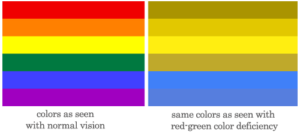
Lesson Plan: Failure Interviews
Image Public Domain, Flickr The goal of this lesson is for students to interview someone who has failed at something—in a small or large, invisible


Image Public Domain, Flickr The goal of this lesson is for students to interview someone who has failed at something—in a small or large, invisible

Acquiring digital skills does not just mean learning how to find one’s way successfully when navigating on the internet, but it also involves, especially in

In an earlier blog post, the DWRL offered various free resources and tips for creating visual content that is accessible to people with visual impairments.
Today’s shift towards the vast complexity of digital literacies involves, perhaps more than any other medium, the skills of producing digital videos, including the so-called

Yelp is a virtual marketplace that has been shaping our spatial orientation for many years, since it was founded in 2004 and has increasingly expanded

Are you reading this blog post from computer screen or an screen reader? Did you need to adjust the font or text size, screen brightness,
In his much referenced TED Talk, David McCandless says that “if you start working with [data] and playing with it in a certain way, interesting
Two of the more ubiquitous problems instructors face today are, on the one hand, the pervasive distraction of smartphones, and on the other hand, the
The rapid rate by which technology replaces and outdates itself has been measured since 1965 by Moore’s Law, which dictates that the amount of transistors
Although closed-captioning is usually thought of in terms of accessibility, it also highlights the larger rhetorical significance of sound—a significance which is most notably taken
Usually when video games appear in the college classroom, they are objects of analysis. We critique them as if they were a book or a

Featured image via Vox Friedrich Nietzsche famously wrote in On Truth and Lies in a Nonmoral Sense that truth is “a movable host of metaphors,
